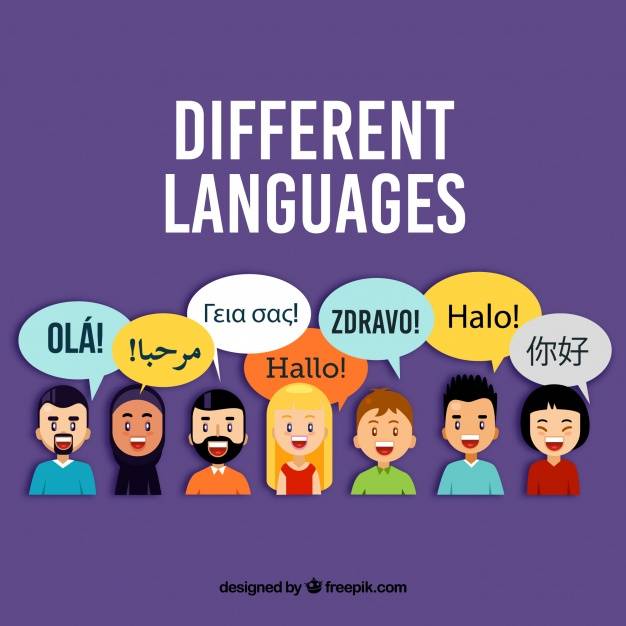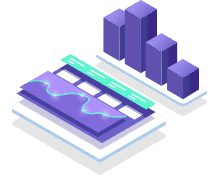Table of Contents
Why the trend of learning English happened?
English is a global language. Every one in four people in the world speaks English.
People all over the world speak English for one or another reason.
Let’s be a little descriptive about the reasons people learning English
Reasons
English is the language of communication globally. The English language is used all over the world for communication while travelling, for shopping, for speaking with foreigners, etc. If you can communicate in English no matter where you go, your life will be easy.
English is the language for business. From a shop vendor to people in the trading business English is a prerequisite.
Upcoming Batches of TEFL Course :-
| Batch | Mode | Price | To Enrol |
|---|---|---|---|
| Starts Every Week | Live Virtual Classroom | 26500 | ENROLL NOW |
Business meeting– If you are doing some international business and your clients are from a different country and speaking different languages then definitely English as an international language comes into play.
Customer service – your customer can be a speaker of any language, if you know English you can build a relationship with your customer and help them.
Marketing and communication– while doing business your customer can be a speaker of any language and so translating your product into English is the best effective way to increase your sales. As English is a common language for communication.
English is the language of learning and higher education. The world’s top universities and colleges teach in the English language. If you want admission to any of these colleges or universities then, the English language is a must.
Learning and gaining knowledge in English is easier as the material whether it is books or e-learning is easily available.55% world’s webpage is written in English.
IF you know English you can be a part of international conferences and events.
English literature has always been in the top-notch in the world. You can have the pleasure to read the famous literature.
Due to the global requirement English is being taught and learned at different levels and for different purposes. Learners can be of different age groups, bilingual, different professions and wanted to learn English for a specific purpose.
Here I have listed some basic purposes for teaching English.
Check- TEFL certification course in Delhi
Purposes
Teaching English for Academic Purposes.

This means teaching English to non-native speakers for their higher studies in English-speaking institutes. Students need to have linguistic and communicative competence for their studies.
Teaching English for Specific Purposes

This means teaching English to people with indefinite employment. They need to have vocabulary and language skills according to their field. Like business English focuses on vocabulary related to a business presentation, report writing.
Teaching English for Exam Purposes.

This means teaching English to the learners preparing for the exams like IELTS and TOEFL. They need to improve their grammar and vocabulary and train them according to the exam requirement.
Teaching English for Young Learners

Teaching English to young learners is more in the case of Asia and Europe. In Asia and Europe English has been included in the national curriculum due to the global scenario. You can either teach in a private school or a public school.
Language teaching methodologies.
The direct method
The direct method or the Natural method uses only target language. This method focuses on oral skills and students are not allowed to use other languages.
Grammar translation

In this method, students learn by the translation of the languages. They also learn grammar rules. This method is the traditional way of learning a language and usually helpful for people who want to study literature.
Audio-lingual
This method is practicing dialogues of every situation. The language is learned by constant practice. It is also known as New Key Method or Army Method and based on behaviorist theory.
The structural approach
This method of teaching has to follow a certain structure or the order of grammar set to learn any language.
Suggestopedia
According to this theory, the learning environment depends on the physical surrounding and atmosphere of the classroom. All learners should feel equally comfortable and confident. The learning environment is created by the various arts and music sessions. Lessons are divided into three phases 1. Deciphering 2. Concert Session 3. Elaboration.
Total physical response (TPR)

This method is based on aural comprehension, where the students are taught by doing physical actions like ‘stand up’, ‘sit down or close the door.
Communicative language teaching (CLT)
This method is used to teach learners the basic communication skills more effectively and appropriate way, according to the real situation they would find themselves in. For example, thanking, asking for help, inviting, etc.
The silent way
In this method learning class is in the control of students rather than the tutor. Students are encouraged to correct their own mistakes and teachers speak as little as possible.
Community language learning
This method focuses on building a bond between teacher and student. In this method, the mother tongue is used for translation.
Immersion
In this method, the target language is used to learn other subjects as well.
For example, in non-native English speaking country students will have subjects like science, math, humanities in English including English subjects.
Task-based language learning
As the name suggests students are allotted certain tasks and use English language skills to complete the task.
The natural approach
In this approach, students are exposed to the language which is comprehensible or made comprehensible for them.
The lexical syllabus
This method is based on computer analysis which identifies the most commonly used words and teaches accordingly. Great emphasis is placed on the use of authentic words.
There is always a demand for English teachers all over the world. If you are looking to make teaching English a career, then know about EFL and ESL world.
What it takes to become an educator in your country or abroad?
What is EFL?
EFL is an abbreviation for “English as a foreign language”. This mainly refers to learning English in a country where English is not a native language.
What is ESL?
ESL is an abbreviation for “English as a second language”. This mainly refers to learning English in a country where English is a native language.
Difference between EFL and ESL.
EFL
How can you become EFL teacher?
You need either of this course to become a certified EFL teacher
- Postgraduate course
- TEFL course
- Assistant
- Professional training
Postgraduate
A postgraduate course will give you more opportunities, and yes having a degree is better than not having one. You will be qualified as an English teacher. At the university level, you can choose between the subjects like English, Linguistics, Education studies, Foreign languages for your postgraduation degree.
Requirements are-
A degree in any subject for a postgraduate course
2 to 3 A levels or equivalent
TEFL course
TEFL (Teaching English as a Foreign language) course can be taken either from the college or training centers available all over the world.
TEFL course and certification vary according to the college and training centres providing it.
It might be full-time/part-time, classroom/online.
The requirement again varies according to the institute. The basic requirement is you need to know English.
You can get more information about TEFL from Henry Harvin education.
Assistant
You can work as a teaching language assistant in schools abroad.
For this, you only need to complete two years in higher education
You do not need any extra qualification
Professional training
Level 5 diploma in education and training also certifies you as an EFL teacher.
Along with being certified you need to have extra skills to become an EFL teacher. After all, you will be guiding the learners and they will look upon you.
Skills you should have as an EFL teacher

- Knowledge of the English language.
- Verbal communication skills.
- English reading skills.
- Writing skills.
- Lesson planning and course designing skills
- Need to be well versed in teaching material (software and apps)
- Classroom management skills.
- Analytic knowledge.
Where can you work as an EFL teacher?
You can work at a college or school and teach at an academic level. You can also work at language schools or institutes either in-person or online. You can be a personal tutor.
You can also get international experience if you work abroad as an EFL teacher.
Your career growth.

You can work as an EFL teacher in the beginning and with the experience, further qualification, and training you can become a professor, progress to a management position in a school or institute, or have your own institute.
Who will be the students?
EFL students are the ones learning English as a foreign language in their own country. So, the experience of the students might be the same. Students will be learning English in the classroom and the rest of the time they will be speaking in their mother tongue.
Classroom management for EFL students.
Although EFL and ESL sound similar teaching strategies are different in both cases. Since EFL teachers come across the students who are learning English as a foreign language, lesson plans and teaching methods can be made accordingly. EFL students needed to be taught academically mostly.
Also check- TEFL certification course in Mumbai
ESL
How can you become an ESL teacher?
To become a certified ESL teacher, you can get qualified in the following ways:
You can become a qualified ESL teacher once you get a master’s degree in any of the fields mentioned.
Masters of Arts or science in applied linguistic,
Master of Education (Med) in TESOL,
Masters of Arts in teaching in ESL,
Masters of Arts in English with an emphasis in TESOL.
You can also get certified as an ESL teacher by getting B.ed in English as a second language.
Various institutes and training centers are providing TESOL (Teaching English to Speakers of Other Language) certification.
The minimum criteria for enrolling in any of the ESL programs are, you should have a bachelor’s degree.
Skills you should have as an ESL teacher
- Knowledge of the English language
- Properly access each student
- Should know when a student is ready to be upgraded to the next level.
- Should have strong verbal and communication skills.
- Lesson plan and course design ability
Where can you work as an ESL teacher?
ESL teachers can teach in private or public schools. Training institutes or as a personal tutor.
Your career growth.
Students learning English and students entering schools as bilingual are increasing. So, ESL teachers are needed at all levels and job opportunities are also in demand. Depending upon the level and the qualification ESL teachers can work at different levels of the school or the institutes.
Who will be the students?

ESL students are the ones learning English in English-speaking countries, students will be speakers of other languages and might be from different countries.
They will be learning English in the classroom and need to speak English outside of the classroom for communication and other purposes.
ESL students can be English learners for specific purposes or the students who want to enter the school (middle school, high school) in English-speaking countries.
Classroom management of ESL students.
Since the students will be speaking different languages classes has to manage accordingly. ESL teacher has to know the level of each student and teach them the English language in a more proficient way.
You might have understood about EFL and ESL, after going through all the descriptions written above.
Let’s talk about the most common certification in EFL and ESL world.
Popular EFL/ESL certification
- TEFL
- TESOL
- TESL
- CELTA
- DELTA
TEFL
TEFL (Teaching English as a foreign language) is the most common acronym used for teaching English abroad. TEFL certification refers to the course and certification required to become an English teacher abroad.
TEFL is an industry acronym and does not represent a company, school, or institute, singular body.
There are lots of TEFL schools, training institutes providing TEFL courses and certification. The TEFL certification varies in course length, expenses, and quality.
TESOL
TESOL (Teaching English as Speakers of Other Language) is another acronym used in the ESL world. This term is used in countries like USA, Canada. With a TESOL certificate, you can teach both in your home country and abroad. It refers to teaching English to non-native English speakers.
TESL
TESL (Teaching English as a Second Language) certification enables you to teach non-native speakers of the English language. You can teach English in a country where English is the first language like the USA, Canada, Australia. This certification is mainly for people who are looking to work in English speaking countries. Whereas TEFL certification is for the one who wants to travel and teach.
CELTA
CELTA (Certification in English Language teaching to Adults) is a certification awarded by the University of Cambridge, Cambridge English Assessment. CELTA certification is recognized all over the world and widely accepted by schools and institutes.
To get CELTA certification you need to be 18 plus and the CEFR level should be high C1 or above.
The course is provided by a variety of schools and Institutes around the globe. The course can be taken in the classroom or online. CELTA course will have 120 hours of class with 6 hours of practicum.
DELTA
DELTA (Diploma in English Language Teaching to Adults) certification is also awarded by the University of Cambridge. It provides professional development for teachers who have at least one year of teaching experience.
This certification is designed for experienced and qualified teachers. DELTA course can be taken face to face, blended form, or distance learning.
No matter whichever course or certification you enrol into, it should meet certain international standards
- 120 hours of training and course work which is equivalent to a 4-week intensive course.
- At least 6 hours of live teaching practice with real students.
- Taught by a qualified English tutor with MA in teaching English as a foreign language or linguistics, DELTA or extensive professional training and English teaching experience.
- Institute is accredited by the accrediting bodies and curriculum inspected by regulating bodies.
Many TEFL schools meet international standards and provide you accredited TEFL certification. IF you want to receive professional training you need to teach at a professional level and gain certification which is recognized all over the world you need to have 120 hours of TEFL certification course.
120 hours of TEFL/TESOL certification by Henry Harvin.
Henry Harvin provides a TEFL course and certification accredited by AAEFL and is ranked 1 by training 360.
Henry Harvin’s online TEFL certification is 120 hours class with 24 hours of post-training support and brush-up sessions.
They provide one-year membership and 100% job assistance.
The duration of the course is 36 hours which is instructor-led
24 hours Bootcamp for next 12 months
60 hours of e-learning access (teaching tools, techniques, video content)
Provides trainer with 10 plus years of experience and can attend multiple sessions from multiple trainers.
Also Read
Top 10 online TEFL certification Denver
Top 10 TEFL courses in Orlando
Top 10 TEFL courses in Chennai
Recommended Programs
120-hours TEFL / TESOL
Online Certification Course
Ranked No. 1 Course | 100% interview guaranteed | Live Online Instructor-led TEFL Training & Certification | AAEFL Certified TEFL Course | Qualify for 12,000+ jobs from 6+ countries | With over 100,000 English teaching positions opening every year, immerse into the market of 2 Billion English learners today.
TEFL Certification Online
Course in USA
Ranked No. 1 TEFL Certification Course in USA | 100% Interview Guaranteed | Online Certification course in USA | instructor-led training and certification program of TEFL | Qualify for 12000+ jobs from 6+ countries.
Post Graduate Program
in TEFL
Ranked No. 1 Course | 100% interview guaranteed | Live Online Instructor-led Post Graduate TEFL Training & Certification | AAEFL Certified Post Graduate Program in TEFL | Qualify for 12,000+ jobs from 6+ countries | With over 100,000 English teaching positions opening every year, immerse into the market of 2 Billion English learners today.
Explore Popular Category






![Top 10 Countries for Teaching English Abroad in 2024 [Updated]](https://hh-certificates.sgp1.digitaloceanspaces.com/blog/wp-content/uploads/2020/05/10105810/pasted-image-0-15-270x180.jpg)
![What is EFL? How does EFL differ from ESL? 2024 [Updated]](https://hh-certificates.sgp1.digitaloceanspaces.com/blog/wp-content/uploads/2021/01/24123609/pasted-image-0-18-270x180.jpg)
![Ten Top TEFL Course in Idaho in 2024 [Updated]](https://hh-certificates.sgp1.digitaloceanspaces.com/blog/wp-content/uploads/2020/12/09120053/blog429-270x180.jpg)

.webp)
